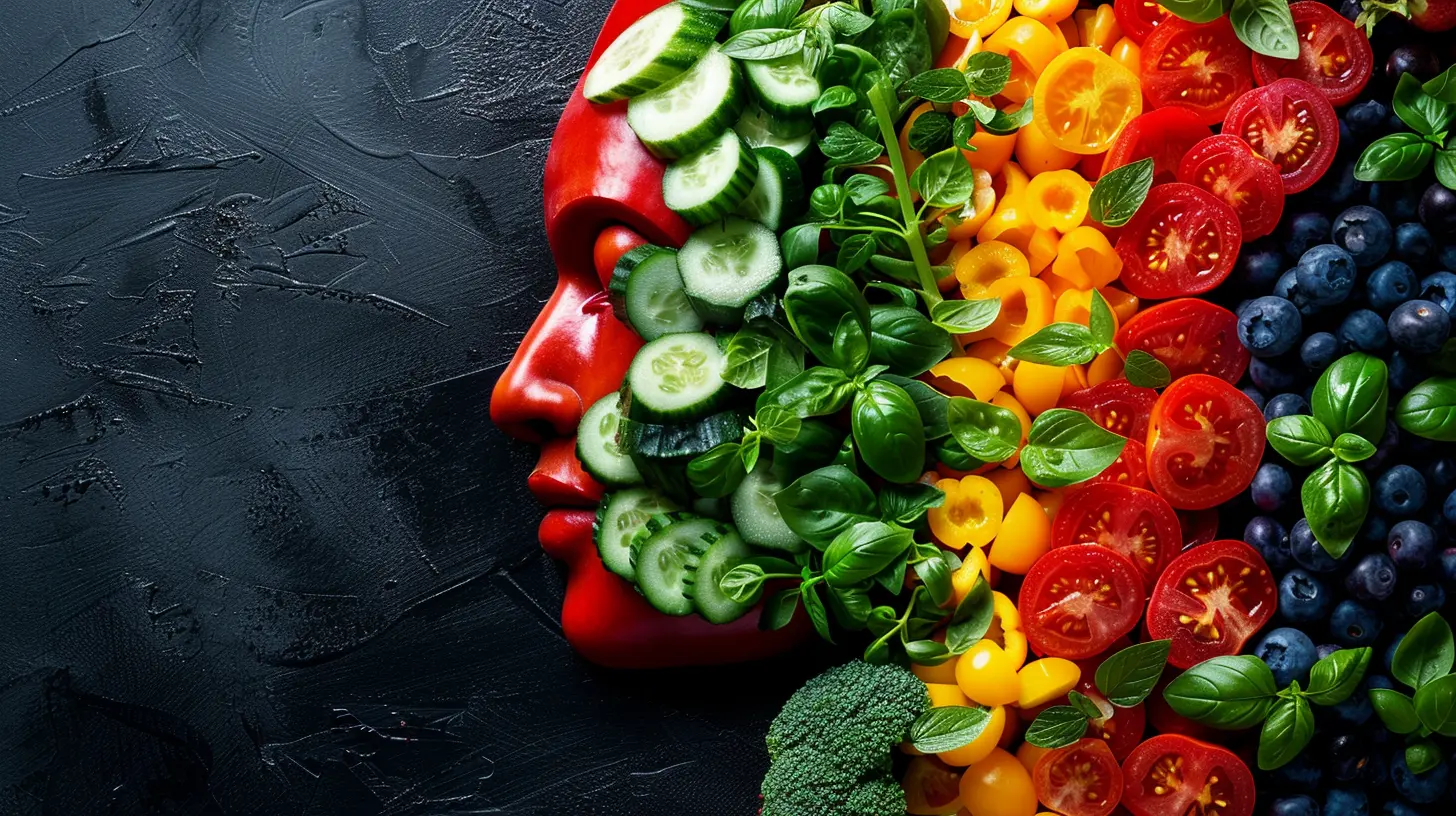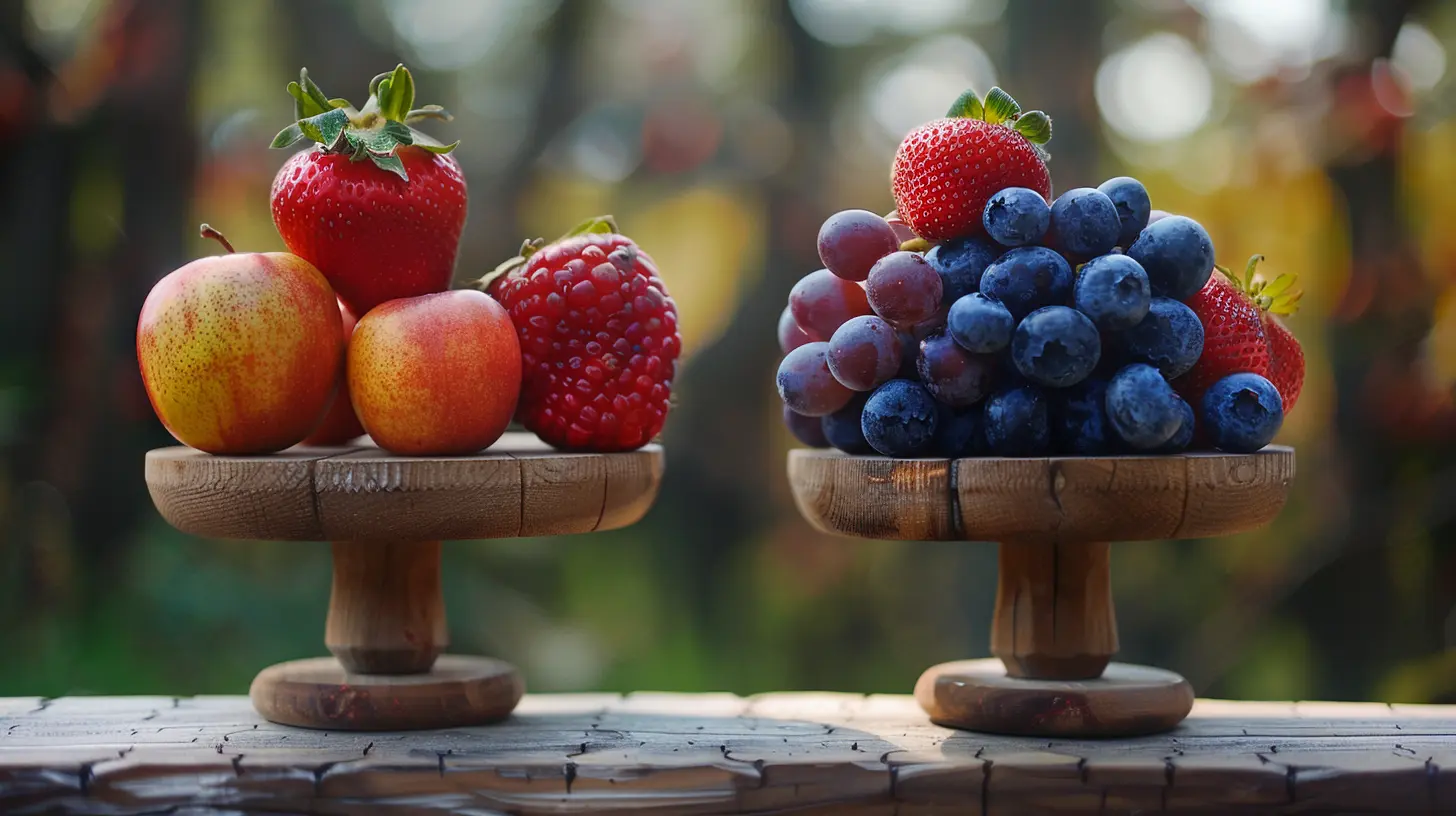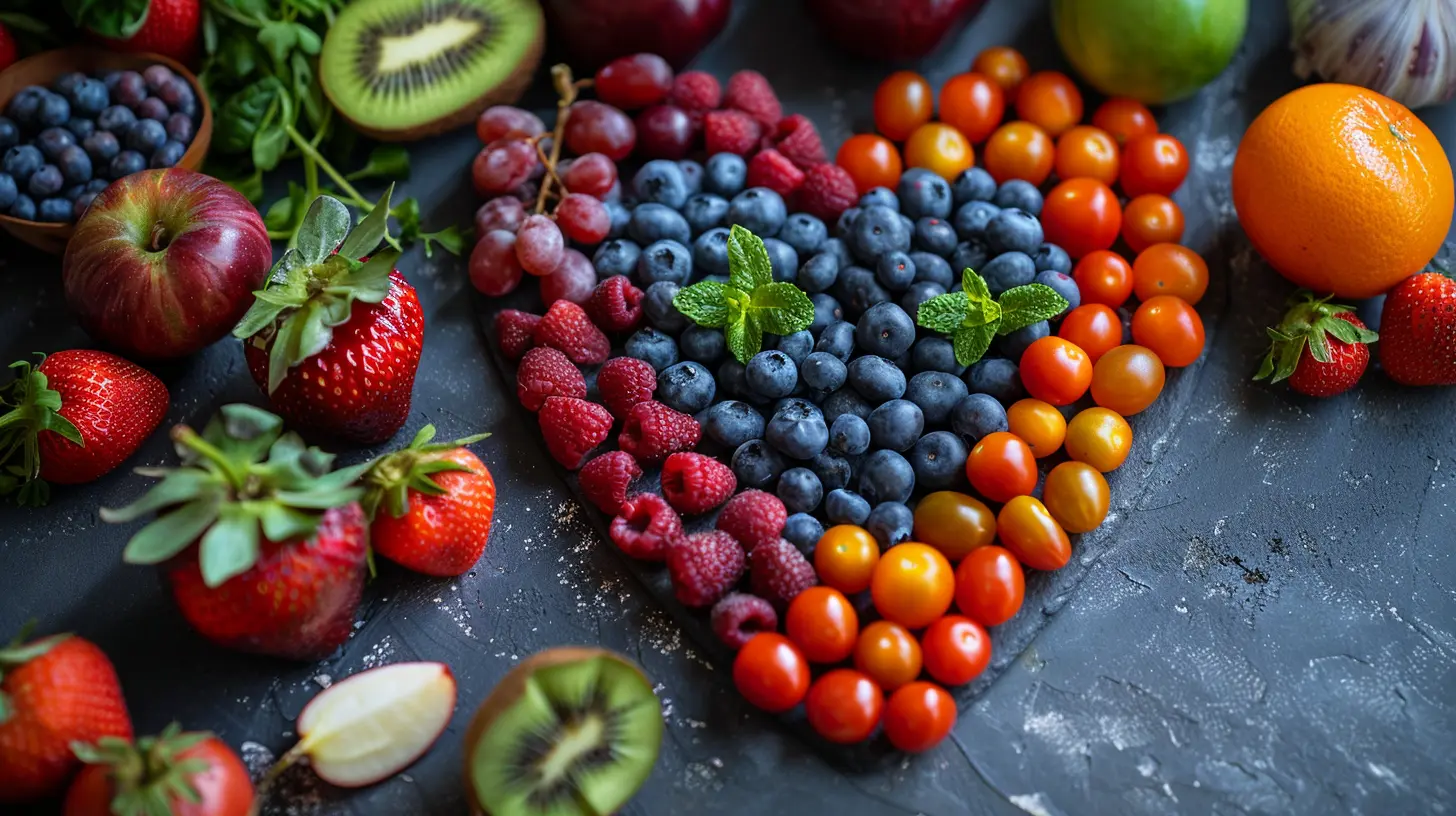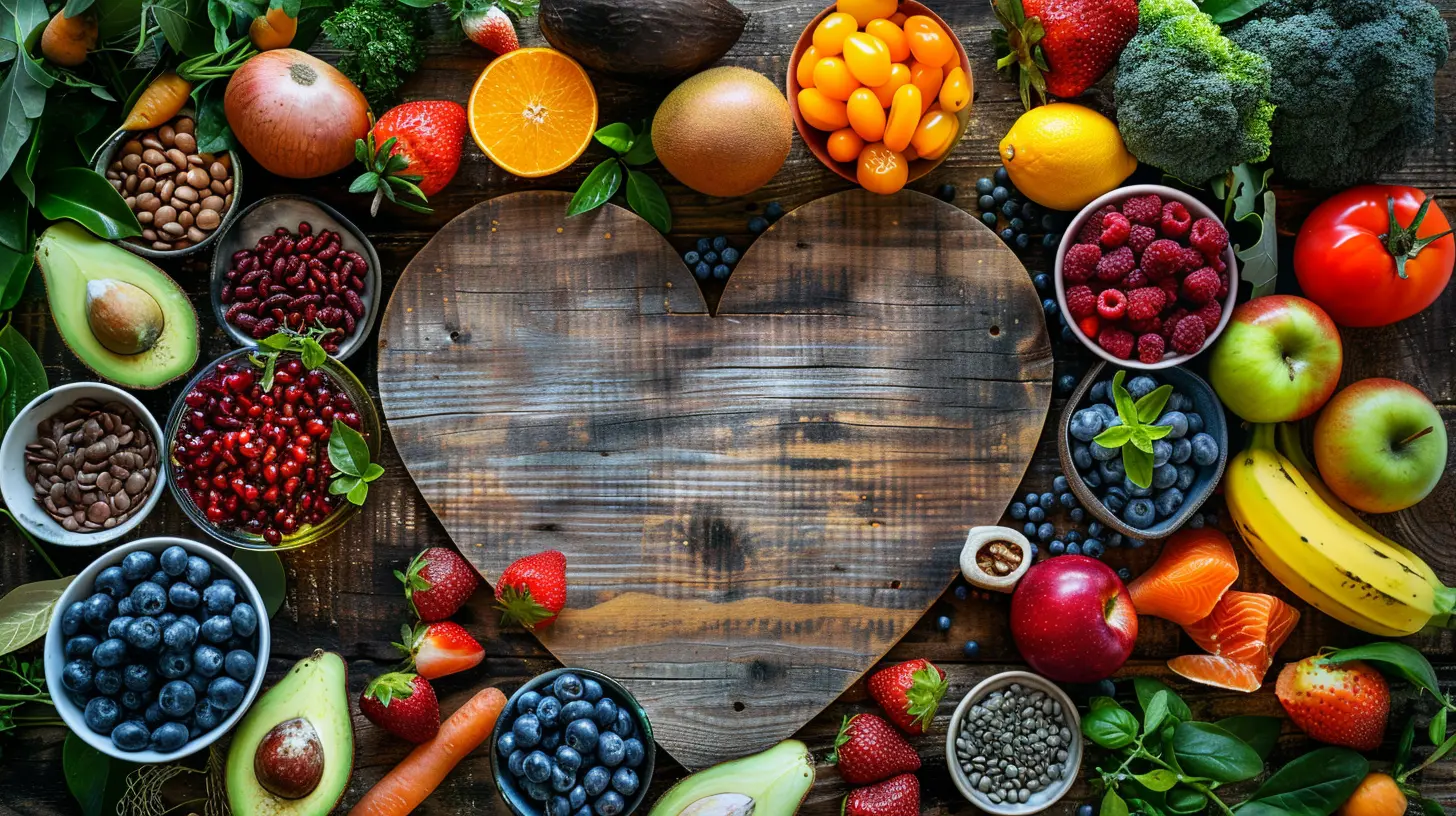The Connection Between Nutrition and Emotional Balance
20 July 2025
Let’s be honest for a second—when was the last time you reached for a snack not because you were hungry, but because you were stressed, sad, or simply bored? You’re not alone. Most of us have been there. It’s way more common than we think. But here’s the thing: the connection between nutrition and emotional balance is a lot deeper than just comfort food habits.
The truth is, what we eat doesn’t just affect our waistline—it plays a huge role in how we feel emotionally. Think of your brain as an engine, and food as the fuel. If you're fueling it with low-quality, sugary junk, your emotional engine is going to sputter. But give it the right kind of fuel, and everything from mood to mental clarity can improve dramatically.
In this article, we’re going to unpack how what you put on your plate shapes what goes on in your head—and heart.
Why Your Mood Starts in Your Gut
Let’s kick things off with your gut, aka your “second brain.” Sounds crazy, right? But there’s solid science behind it.Your gut is home to an entire ecosystem of bacteria, known as the gut microbiome. These little guys aren’t just freeloaders—they do important jobs, like producing neurotransmitters (those brain chemicals that control mood, like serotonin and dopamine). In fact, about 90% of your serotonin (your feel-good hormone) is produced in your gut!
So, when your gut is happy and fed with the right stuff—like fiber-rich fruits, veggies, and fermented foods—it’s more likely to send positive vibes up to your brain. But cut off its fuel supply or flood it with processed food, and you might find yourself feeling sluggish, anxious, or downright blue.
The Blood Sugar Rollercoaster (And Why You Want Off)
Ever eaten a donut for breakfast only to crash by mid-morning and snap at someone for no reason? Yeah, that’s your blood sugar messing with your emotions.Foods high in sugar or refined carbs (think white bread, pastries, soft drinks) cause your blood sugar to spike like a rocket... and then crash just as fast. That crash can trigger irritability, anxiety, and even feelings that mimic depression. It’s like riding an emotional rollercoaster without a seatbelt.
Stable blood sugar equals stable moods. That means focusing on slow-digesting, high-fiber foods like oats, sweet potatoes, beans, and whole grains. Pair these with proteins and healthy fats, and you’ve got an all-day energy-and-mood cocktail.
"Comfort Foods" Are Lying to You
Let’s talk about emotional eating for a second. You know the drill: bad day, breakup, stress at work—and suddenly, there’s a pizza or tub of ice cream calling your name. It feels good in the moment (hello, dopamine rush), but what comes after?That’s right—the crash. Bloated, guilty, and somehow even worse than before.
So what’s going on here? These “comfort foods” typically cause quick dopamine hits, the same chemical that’s released when gambling, doing drugs, or scrolling through TikTok. Your brain gets addicted to those quick highs, but over time, it needs more and more to get the same "fix", leading to a vicious cycle of emotional dependence on junk food.
Real comfort doesn’t come from a bag of chips. It comes from taking care of yourself in a way that supports your body and brain.
Nutrients That Make a Real Difference in How You Feel
Now, let’s get into the good stuff—what foods actually help us feel better?1. Omega-3 Fatty Acids
These are the MVPs of mood-boosting nutrients. Found in fatty fish like salmon, sardines, and chia seeds, omega-3s are known to reduce inflammation in the brain and improve the flow of neurotransmitters. Studies have even found that people with depression often have low levels of omega-3s.Don't do fish? No worries. You can get plant-based omega-3s from flaxseeds, walnuts, and algae-based supplements.
2. B Vitamins (Especially B6, B12, and Folate)
B vitamins are essential for energy production and neurotransmitter regulation. B6, B12, and folate in particular play a huge role in mood balance. Deficiency in these vitamins? That can mean fatigue, brain fog, irritability, and yes—even depression.You’ll find B vitamins in foods like eggs, leafy greens, legumes, and whole grains.
3. Magnesium
This underrated mineral helps regulate your nervous system and may reduce symptoms of anxiety and irritability. If you've ever felt twitchy, tense, or had trouble sleeping, low magnesium could be part of the issue.Load up on foods like spinach, pumpkin seeds, almonds, and dark chocolate (yes, good-quality dark chocolate actually can help your mood!).
4. Vitamin D
Ah, the sunshine vitamin! It’s produced when your skin is exposed to sunlight, but you can also get it from foods like egg yolks, fortified milk, and fatty fish. Deficiency in vitamin D has been linked to depression and seasonal affective disorder (SAD).If you live in a place that’s cloudy 24/7 or you’re stuck inside most of the time, a supplement might be worth checking out.
5. Amino Acids
These are the building blocks of protein—and of neurotransmitters like serotonin and dopamine. If your protein intake is low, it’s like trying to build a house without bricks.Make sure you're getting a variety of protein sources: meat, fish, eggs, legumes, tofu, tempeh, and dairy (if tolerated).
Hydration: The Forgotten Hero
Sometimes we forget the basics. Dehydration can sneak up on you, and even mild dehydration can affect your mood. Symptoms like irritability, trouble concentrating, and fatigue aren’t always just because you didn’t sleep well—they could simply be signs you need more water.So if you’re feeling off, ask yourself: “Have I had enough water today?”
Emotional Eating vs. Intuitive Eating
We’ve touched on emotional eating, but what’s the alternative? Enter intuitive eating.It’s not a diet—it’s more of a mindset. It means listening to your body’s hunger cues and eating in a way that nourishes and respects your physical and emotional needs. No guilt. No restriction. Just real awareness.
Start by asking yourself: "Am I truly hungry, or am I trying to numb something?"
Sometimes a walk, a good cry, or talking to a friend does more for your emotional balance than snacking ever could.
Mental Health Conditions and Food
Let’s be clear: Nutrition isn’t a cure-all. If you’re dealing with depression, anxiety, or other mental health conditions, food is part of the puzzle—not the whole thing.That said, plenty of studies show that a nutrient-dense diet can support treatment and improve symptoms. In fact, some therapists now include diet assessments in mental health plans.
So while food won’t be a magic fix, it can be a powerful ally on your wellness journey.
Tips to Boost Mood Through Food (Starting Today)
Want to make changes without overhauling your entire life? Try these simple steps:- Start with one whole-food-based meal per day. Build from there.
- Include a protein source in every meal. Helps with blood sugar and mood stability.
- Add fermented foods like yogurt, kimchi, or kefir to support gut health.
- Stay hydrated. Keep a water bottle handy.
- Cut back on caffeine and alcohol, which can mess with your emotional balance.
- Go easy on sugar. That doesn't mean never—just not always.
Remember, it’s not about perfection, it’s about progress.
Final Thoughts: Food Is Emotional Fuel
Here's the bottom line: food isn’t just fuel for your body—it’s fuel for your soul. The connection between nutrition and emotional balance is real, and understanding it is the first step toward a more stable, joyful, and energized you.We’re all navigating life with our own set of stressors, fears, and goals. The good news? One of the most powerful tools for emotional wellness is already sitting in your kitchen.
So the next time you’re wondering why you feel off, take a peek at your plate. It just might be the key to bringing your mood back into balance.
all images in this post were generated using AI tools
Category:
WellnessAuthor:

Laura Hudson
Discussion
rate this article
1 comments
Melissa Sullivan
This article compellingly emphasizes how our diet significantly influences emotional well-being, encouraging deeper exploration of nutrition's impact.
August 1, 2025 at 3:01 PM

Laura Hudson
Thank you! I'm glad you found the article compelling. Exploring the link between nutrition and emotional well-being is crucial for promoting holistic health.


